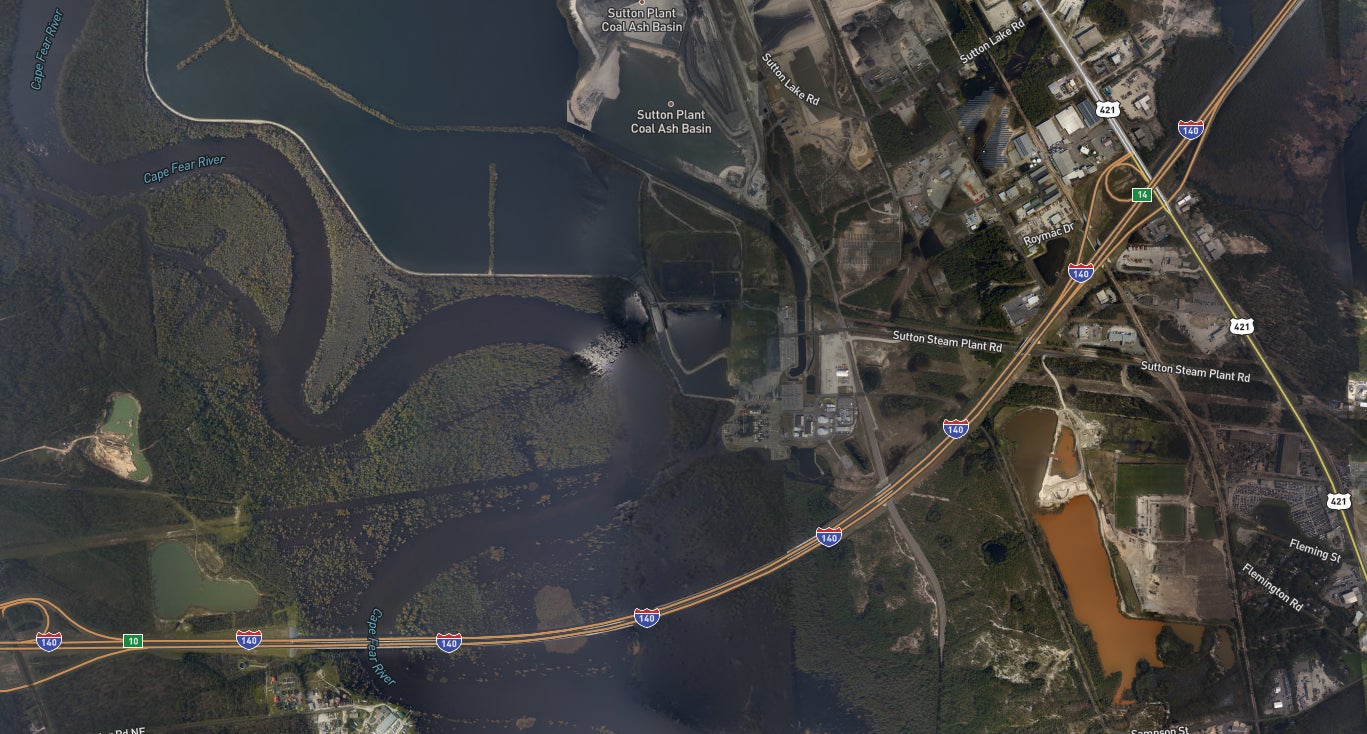An arsenic soup could be contaminating public water supplies after Hurricane Florence
As floodwaters from Hurricane Florence continue to rise in North Carolina, they’re overwhelming the infrastructure that separates two basins of coal ash from the public water supply. It now appears water containing arsenic, mercury, lead, and other heavy metals from at least one of the basins has leaked into Sutton Lake, breached a dam, and entered Cape Fear River.


As floodwaters from Hurricane Florence continue to rise in North Carolina, they’re overwhelming the infrastructure that separates two basins of coal ash from the public water supply. It now appears water containing arsenic, mercury, lead, and other heavy metals from at least one of the basins has leaked into Sutton Lake, breached a dam, and entered Cape Fear River.
Duke Energy, which owns the basins, said it couldn’t rule out that coal ash might be escaping into the river, according to the Associated Press. The river is a water supply for Wilmington, a city of about 60,000.
Coal ash is a byproduct of coal combustion at coal-fired power plants. The basins affected are among the dozens owned by Duke Energy, the state’s largest electricity supplier. Dotted throughout North Carolina, such basins hold over 100 million tons of coal ash. A court ordered Duke Energy to clean up some of the basins by 2019, but the storm came before such efforts could be completed.
The US National Oceanic and Atmospheric Administration captured aerial images that clearly show an overtopped coal ash basin spilling into the lake and river, as the website Earther pointed out.
After assessing the area by motorboat yesterday (Sept. 21), Kemp Burdette of the organization Cape Fear Riverkeeper said in a statement: “Coal ash will be in the floodwaters of downtown Wilmington shortly. The coal ash ponds, Sutton Lake, and the Cape Fear River are now one. This was an entirely avertable tragedy that Duke Energy could have prevented. We will all be paying for this disaster for years to come.”
Exposure to coal ash waste “can cause severe health and environmental problems in the form of cancer and non-cancer risks in humans, lowered IQ among children, and deformities and reproductive harm in fish and wildlife,” according to the US Environmental Protection Agency. “Many of these pollutants, once in the environment, remain there for years.”
Even before the storm, some parts of North Carolina may have already been paying the price for living near coal ash. As the New Republic noted last November, residents living close to a coal ash site in the city of Belmont have reported abnormally high rates of cancer.
And this isn’t the state’s first coal ash disaster.
In 2014, Duke Energy spilled 39,000 tons of coal ash into the Dan River after a pipe collapsed. The incident left 70 miles (113 km) of the river coated in coal sludge. The following year, the company informed some residents of nearby Dukeville that they should not drink the water from their home faucets because it had been contaminated by coal ash waste.
In May 2015, Duke Energy pled guilty to criminal negligence after federal prosecutors found that it could have avoided the spill. In 2016, North Carolina gave the company until 2019 to clean up and close remaining coal ash basins that pose threats to public health. The company has been working on draining some basins—especially those near the coast—but the cleanup was not finished in time for Hurricane Florence.
The current spills come just two months after the Trump administration moved to loosen Obama-era coal-ash disposal regulations.